7 Steps to Improving the UK at Eurovision
In my final Eurovision 2015 post, it’s time to consider my country. United Kingdom. 5 points, 24th place and yet another evening spent rooted to the bottom end of the scoreboard means lots of people are taking their annual interest in the UK’s Eurovision performance. Points have ranged from the United Kingdom should withdraw from the contest because it’s political and Europe hates us, to the people of the UK should have a say in selecting the next Eurovision entry. Given the amount of discussion, including an article in daily newspaper, The Sun, here are some key things the UK needs to take into account and consider when selecting our next Eurovision entry…
1. Europe takes Eurovision seriously

Face up to the fact. Eurovision is not the beast it was twenty years ago. Eurovision is now a massive business, with masses of merchandise, an official CD and international exposure wider than once was thought possible. It therefore comes as no surprise that the rest of Europe takes Eurovision seriously. They send their best artists, invest money in sending quality songs and spend a lot of money on their entries. Mans Zelmerlöw, this year’s winner, took part in Sweden’s version of Pop Idol ten years ago. Since then he has had two number one albums in Sweden and other albums in the top 5 since 2005.
It isn’t just Sweden either. This year’s newcomers Australia entered Guy Sebastian – an artist who has had 7 top ten albums since 2003. Kjetil Mørland, one half of Norway’s representation was a member of Absent Elk – a band that supported hit UK bands such as The Script, The Hoosiers and Girls Aloud. Belgium’s entrant Loïc Nottet came second in their version of ‘The Voice’, Russia’s entrant Polina Gagarina has had numerous top ten hits in Russia and Estonia’s Elina Born also has a similar chart record. To Europe, Eurovision is a serious contest and such they submit current artists singing contemporary music (in the main) to the contest.
2. The UK doesn’t take Eurovision seriously
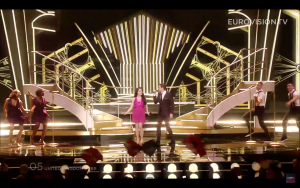
Now let us contrast this with United Kingdom’s efforts. We have one of the biggest music industries in the world but don’t send anything truly contemporary and representative of what our music industry offers. In the main, the UK has a total disregard for the contest. When we have sent well known artists in the last fifteen years we have not sent current artists – Blue were trying to launch a comeback, Englebert Humperdinck was 76 with his last hit album being a number 4 effort in 2004, and Bonnie Tyler hadn’t had a decent hit since 1991. Add to this a mix of unknowns in other years, and is it any wonder why Europe won’t vote for us? If we can’t treat the contest seriously why bother voting for us? And… general public of the United Kingdom – one of the biggest reasons for this is because….
3. The UK public perception of Eurovision is out of date.
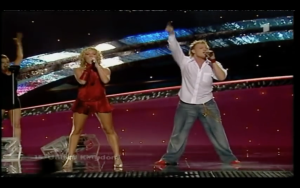
I have seen the calls for the United Kingdom to go back to a national selection contest. Yes, the same type of contest that was held on a Sunday afternoon in what is known as a graveyard shift until we got ‘0’ points and we shifted the contest to early Saturday evening. Yes, the same national contest which saw fit to select Jemini’s ‘Cry Baby’ (0pts, 26th, 2003), Javine’s ‘Touch My Fire’ (18pts, 22nd, 2005), Scooch’s ‘Flying the Flag’ (19pts, 22nd, 2007) and Andy Abraham’s ‘Even If’ (14pts, 25th, 2008). The UK public are just as bad at selecting entrants as the BBC internal selection team are! Why? Because the British public still think Eurovision is some cheesy contest filled full of novelty acts and therefore try to send something ‘Eurovision’. Graham Norton this year said our act was ‘very Eurovision’ – yes it was… thirty years ago. The UK simply has not moved with the times. But all is not lost….
4. When the UK takes Eurovision seriously, Europe does vote for us
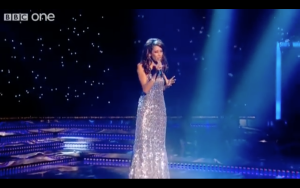
It has to be said the UK’s best results in the last fifteen years have come from the entries that are contemporary and take Eurovision seriously. Jessica Garlick represented the UK in 2002 with ‘Come Back’ – a modern ballad, and came 3rd. Andrew Lloyd Webber wrote our entry in 2009, a sign that we were taking the contest more seriously. He appeared on stage alongside our entrant Jade Ewen who sung ‘It’s My Time’, and the UK came 5th. Blue sent a contemporary song in 2011 and came 11th. All is not lost for the United Kingdom, however it needs to understand that contemporary songs and reasonably recent, popular acts are what is needed – not a foray into the world of bad electro-swing (Electro-Velvet), the unknown (Molly) or has-beens (Bonnie, Englebert and Blue). So what should the UK do next…
5. Challenge the British public’s perception of Eurovision
Eurovision acts are blatantly popular in the United Kingdom given how high they rank in iTunes directly after the contest. Some may argue it’s die hard Eurovision fans who were going to buy these anyway… but everyone knows we buy the album before the contest! Why not invite these popular artists onto UK television shows to perform their songs? Show the British public that the up-to-date Eurovision sound isn’t a halfway house between Scooch and Electro Velvet.
6. Prove that failure at Eurovision is not damaging
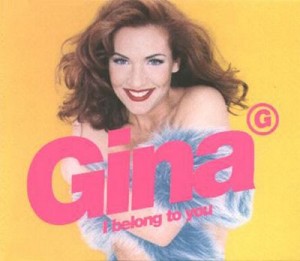
Part and parcel of challenging Britain’s perception is to get the major record companies on board with what Eurovision can offer. If you have a bloody good song, then no one cares two weeks later whether you won the contest or not. Gina G represented the UK in 1996 with ‘Oooh Aaah Just A Little Bit…’ – we came 8th. Public perception amongst the non-Eurovision fans is still that she won. Off the back of Eurovision Gina G launched a hit album and scored a few more hits. In fact Gina G’s career only stalled because of legal difficulties – not because of Eurovision destroying her career. This is the true image of Eurovision – one of opportunity. If you have the right song, it doesn’t matter how you do. Let’s not forget Gina G was number one across Europe before Eurovision took place that year either.
7. Only move back to public preselection if you veto the acts properly first.
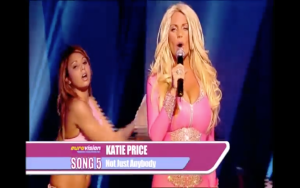
The final point I have to make on the UK’s performance at Eurovision is that I think the BBC should not make a rash decision to move straight back to a national preselection contest. Shows such as ‘Eurovision: Your Decision’ and ‘Song For Europe’ should only be brought back if the songs are properly vetoed first. That means songs like ‘Flying the Flag’ (Scooch, 2007), ‘Cry Baby’ (Jemini, 2003), ‘Not Just Anybody’ (Katie Price, 2005) and ‘Woo… You Make Me’ (Michelle Gayle, 2008) should simply have never made it through to the national final. They should be representative of the UK industry at the time – and these songs most definitely weren’t. I’m all for preselection if the acts represent the types of songs our music industry produces. I’m also going to add in here, I’m all in favour for a preselection that selects our entrant based on the number of phone votes received not regional juries – I still haven’t forgiven the BBC for 2003 where Jemini won on a regional jury system when previous years entrants had been selected on number of votes received. Coincidently if the latter system had been in place that year the UK would have been represented by the far superior song and ballad ‘Help Me’ sung by Emily Reed.
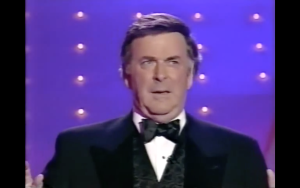
The bottom line is, the UK needs to alter its perception of Eurovision. Poor UK performances in Eurovision have not been down to politics and neighbourly voting. Poor UK performances in Eurovision have been down to the UK sending a selection of acts that quite frankly weren’t good enough. If the BBC and the UK aren’t going to take Eurovision seriously, then Europe won’t take our entries seriously either – that’s not politics and that is the truth – and the sooner people start challenging the ‘Everybody hates UK’ political view of Eurovision the better.
